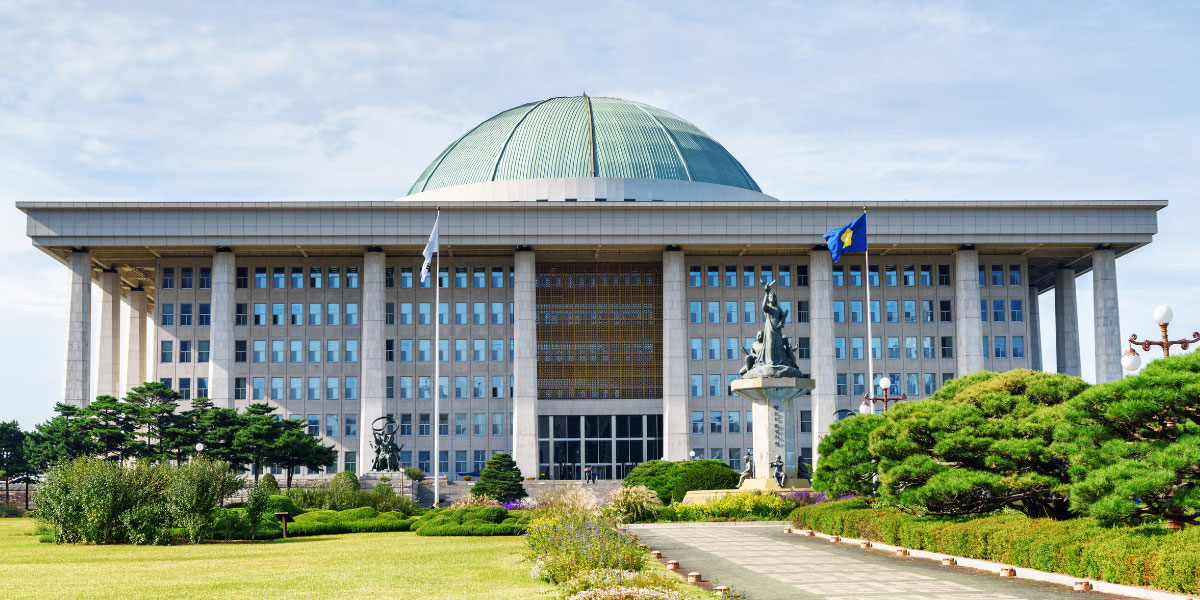On 30 July 2018, South Korea’s Ministry of Economy and Finance (MOEF) has issued an overview of the proposed 2018 Tax Revision Bill for strengthening social welfare and bringing about redistribution of income, promoting job creation and growth through innovation, and pursuing fair taxation.
Some of the main measures of the proposed tax revision bill are as follows:
Establishing social welfare and redistribution of income
- Expand reporting requirements for overseas financial accounts, including for corporations;
- Increase penalties for not reporting overseas property transactions;
- Extend the statute of limitation for offshore transactions to 10 years for under-reporting and non-reporting (remains 15 years for fraud);
- Extend the scope of VAT to includes overseas cloud services;
- End tax-free interest and dividend income earned from financial cooperative accounts, which applies to nonmembers from 2019 and members from 2022;
- Make virtual currency dealers ineligible for the SME tax reduction; and
- End tax exemptions for derivatives sales.
Creation of Job and ensuring growth through innovation
- Provide increased tax support for businesses investing in designated areas affected by restructuring, including a five-year corporate and income tax exemption for startups, increased tax reduction for business asset investments, and expanded SME tax support for employee retention and reduced work hours;
- Provide SMEs a one-year labor cost deduction for returnees from childcare leave (more than 6 months), applicable to both mothers and fathers;
- Revise the zone-specific tax support program on job creation;
- Expand the reshoring tax reduction to large enterprises moving only part of their operations back into the country;
- Extend by three years the SME tax reduction for social insurance contributions paid for new employees and for creating permanent positions for temporary employees;
- Allow accelerated depreciation for facilities invested between 1 July 2018 and 31 December 2019, if they are to boost growth through innovation;
- Increase tax support for R&D investment, including a tax reduction of up to 40% of investments in blockchain technologies and quantum computing;
- Increase tax support for investments made to commercialize R&D outcomes, including a reduction in the investment in R&D requirement from more than 5% of total sales in the previous year to 2% of total sales;
- Extend the period of the 50% income tax reduction given to foreign engineers from 2 years to 5 years;
- Provide startup accelerators an expanded capital gains tax exemption to include stocks purchased through private equity funds, in addition to stocks purchased directly or stocks purchased through public equity funds; and
- Provide startup accelerators a VAT exemption for their services.
Ensuring fair taxation
- Revise environmental taxes to reflect the amount of pollutants emitted;
- Increase the tax exemption for dividend income earned from subsidiary shares in order to encourage holding companies to raise shares in their subsidiary companies, including:
- A 100% exemption if holding over 40% in listed shares and 80% in unlisted shares (unchanged);
- A 90% exemption if holding 30% to 40% in listed shares and 50% to 80% in unlisted shares (new exemption percentage and thresholds);
- An 80% exemption if holding 20% to 30% in listed shares and 40% to 50% in unlisted shares (new thresholds); and
- A 30% exemption if holding less than 30% in listed shares and less than 40% in unlisted shares (unchanged)
- Revise the tax reduction for facility investment to include:
- Up to a 10% reduction for investment to improve safety or welfare; and
- Up to a 7% reduction for investment in R&D and productivity improvements.
Other Measures
In addition to the measures highlighted in the release, the proposed 2018 Tax Revision Bill also includes measures to:
- Abolish the income tax reductions/exemptions provided specifically for foreign-invested companies, while maintaining the customs exemption for capital asset imports within 5 years of providing notification of foreign investment and the property tax exemption (up to 15 years);
- Reduce the loss carryforward offset limit for foreign corporations from 80% to 60% from 1 January 2019 (already scheduled for domestic corporations);
- Expand the permanent establishment (PE) rules to bring them in line with the latest OECD guidelines and with respect to dependent agent PEs and with respect to artificial avoidance of a PE through fragmenting business activities in order to take advantage of the PE exemptions for preparatory and auxiliary;
- Expand the transfer pricing rules to provide that in determining whether a transaction is at arm’s length, the tax authority must accurately delineate the transaction in consideration of the commercial and financial conditions between a resident and its foreign related party, and where a transaction lacks commercial reason, the tax authority must disregard or re-characterize the transaction; and
- Abolish the provision under domestic law that the provisions of a tax treaty will be preferentially applied in respect of the classification of domestic (Korea) source income of a nonresident.
The 2018 Tax Revision Bill is to be submitted to the National Assembly on 31 August. Subject to approval, the measures will generally apply from 1 January 2019.














